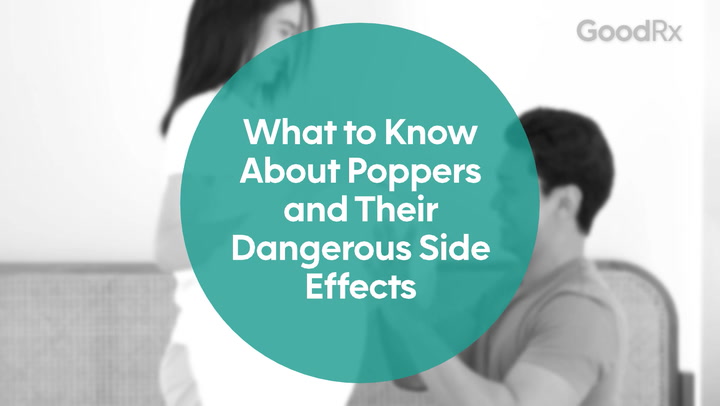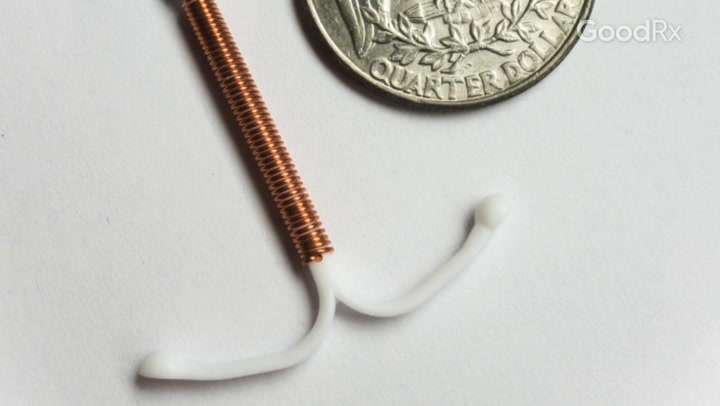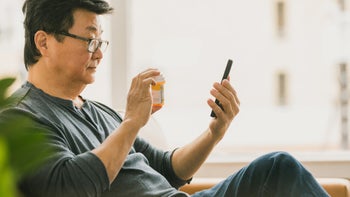
What Is An Aphrodisiac, and Can It Really Put You in the Mood?
Key takeaways:
Aphrodisiacs are foods, herbs, and supplements believed to increase sexual desire, improve sexual performance, or enhance the sexual experience.
The concept of aphrodisiacs has been around for centuries. There’s no evidence that aphrodisiacs work, although they might have a placebo effect.
There are proven ways to boost your libido and enhance sexual performance. Examples include exercising regularly, getting adequate sleep, and managing stress.

Have you ever heard that oysters will “put you in the mood?” Or that chocolate will increase your sexual desire? If so, you were hearing about the concept of aphrodisiacs, even though you might not have realized it.
An aphrodisiac is a substance that is meant to increase sexual desire and improve your sex life. And while many people think this is proven science, it’s actually unclear whether or not aphrodisiacs work.
What are aphrodisiacs?
The word “aphrodisiac” is derived from Aphrodite, the Greek goddess of love. Aphrodisiacs are substances believed to enhance sexual pleasure and performance. According to conventional wisdom, they can boost libido, enhance sexual pleasure, boost sexual attraction, or improve sexual performance. An aphrodisiac can be a food, herb, or medication. And they are typically derived from plants, animals, or minerals.
Fast, affordable ED treatment from GoodRx
Build a personalized treatment plan and get erectile meds delivered discreetly. Subscriptions start at just $18/mo.

GoodRx is NOT insurance. Cancel anytime. GoodRx Health information and resources are reviewed by our editorial staff with medical and healthcare policy and pricing experience. See our editorial policy for more detail. We also provide access to services offered by GoodRx and our partners when we think these services might be useful to our visitors. We may receive compensation when a user decides to leverage these services, but making them available does not influence the medical content our editorial staff provides.
Before diving into if they work, let’s discuss how they work — or at least how they’re supposed to work. Aphrodisiacs are divided into three main categories:
Those that increase libido, or sexual desire
Those that boost sexual pleasure
Those that improve sexual potency, or the ability to perform
There are a few different theories about how aphrodisiacs work, depending on the type. But there hasn’t been a ton of research in this area.
That being said, aphrodisiacs are thought to:
Relax smooth muscles and increase blood flow, which can lead to an erection or enhanced sexual arousal in females
Change brain levels of neurotransmitters that enhance sexual arousal — dopamine, glutamic acid, nitric oxide, and oxytocin — and those that diminish it, such as serotonin and gamma-aminobutyric acid (GABA)
Increase levels of androgens, hormones like testosterone, and dehydroepiandrosterone (DHEA), which all play a role in sexual arousal, desire, and orgasm in males and females
What are the most common natural aphrodisiacs?
Most natural aphrodisiacs are either foods or herbs. You can find some of these substances in more of a whole-food form, like in tea, and others in over-the-counter supplements. Here are some examples of natural aphrodisiacs:
Oysters
Figs
Dates
Strawberries
Honey
Saffron
Maca
Ginseng
Yohimbe
Tribulus terrestris
Date palm
Kaempferia parviflora
Eurycoma longifolia
Turnera diffusa
Saw palmetto
Fenugreek
Read more like this
Explore these related articles, suggested for readers like you.
Do aphrodisiacs actually work?
If you’re wondering whether aphrodisiacs actually work, the short answer is: not really. Animal studies have shown promising results. But there haven't been many human studies on aphrodisiacs. Even in the existing human studies, there's not enough data to make definitive statements.
Researchers from one review looked at data from 50 trials and case studies. They concluded that evidence is limited but supportive of some aphrodisiacs, such as maca, tribulus, ginkgo, and ginseng. But there's a need for more evidence to determine if they actually work. As for other aphrodisiacs — including yohimbe, Spanish fly, mad honey, and Bufo toad — the researchers said the risks outweigh any potential benefits.
But while the scientific evidence behind aphrodisiacs is lacking and inconclusive, you can't underestimate the placebo effect, which can be pretty powerful. This is the power of suggestion and what several experts say is behind the "effectiveness" of aphrodisiacs.
In other words, if you think a food or herb might enhance your sexual desire, there's a chance that it will, even if there's not an actual physiological response.
When it comes to foods that are considered aphrodisiacs, there's also the nutrient breakdown to consider. Think about oysters, one of the most well-known aphrodisiacs. While oysters might not directly enhance libido, they're rich in zinc. Zinc can boost testosterone levels, which affects sexual function in males and females. Zinc can also alter dopamine levels, which affects sexual function.
What are the possible side effects of aphrodisiacs?
While they may not cause a physiological response, many aphrodisiacs are unlikely to cause any harm. For example, oysters and chocolate, which are some of the most well-known, food-based aphrodisiacs, are unlikely to have side effects when you eat them in moderation.
At small-to-moderate doses, herbal aphrodisiacs — like kava, bitter orange, ginseng, and yohimbe — are generally considered safe. However, in rare cases (and usually at very high doses), they can cause the following side effects:
Yohimbe has also been connected to heart attacks and seizures. Because of this, the supplements have been banned or restricted in many countries.
How do you use aphrodisiacs?
Since the science behind aphrodisiacs is limited, there's no standard guidance on how to use them. That being said, you can safely experiment with different types of aphrodisiacs by following some general guidelines.
For food-based aphrodisiacs, eat a serving or two daily. For oysters, this means about three oysters per day. For chocolate, a serving is about 1 oz.
For herb-based aphrodisiacs, like maca or kava, you have a couple of options. You can create your own beverage by mixing powders or liquids into water. Or you can try them in supplemental form, typically as capsules or tinctures that don't require any preparation.
Note that the FDA does not issue approval for over-the-counter supplements. So the reported dosage and ingredient information on supplement labels is not always reliable. Look for options that have a seal from the United States Pharmacopeia (USP) or National Sanitation Foundation (NSF) on the label. Those products have gone through additional testing.
Keep in mind that the physiological effects aren't necessarily immediate, if there are any. Outside of the placebo effect, the biggest benefits will likely come with consistent use. But listen to your body, as you don't want to overdo it.
What are proven ways to increase your libido, instead of using aphrodisiacs?
Many Americans report difficulty with sexual desire and performance. This affects roughly 10% to 52% of males and 25% to 63% of females.
While the effectiveness of aphrodisiacs is yet unproven, there are some natural, scientifically backed ways to increase your libido:
Getting enough exercise: Research shows that exercise can help improve sexual desire, arousal, and performance.
Prioritizing sleep: Insufficient and disrupted sleep has been shown to negatively affect sexual function.
Managing stress: Stress and anxiety can contribute to a lower sex drive and issues with sexual performance. So it’s a good idea to find ways to manage stress, like practicing meditation and mindfulness, spending time outside, making connections with people and animals, and eating nourishing foods.
Reconsidering your habits: Smoking and drinking alcohol can have negative effects on your sexual desire and arousal.
The bottom line
Overall, the science around aphrodisiacs is lacking. You might experience some sexual enhancement after eating oysters or taking ginseng, for example. But many experts believe this is due to the power of suggestion. In other words, if you believe you'll be more aroused after eating oysters, you probably will be.
If you want to increase your sex drive, you're better off trying some tried-and-true methods. Examples include exercising regularly, getting adequate sleep, and managing stress. And make sure you check in with your healthcare provider to rule out any underlying causes.
Why trust our experts?



References
Argiolas, A., et al. (2003). The neurophysiology of the sexual cycle. Journal of Endocrinological Investigation.
Boston University School of Medicine, Sexual Medicine. (2003). Androgen insufficiency in women.
Brunetti, P., et al. (2020). Pharmacology of herbal sexual enhancers: A review of psychiatric and neurological adverse effects. Pharmaceuticals.
Cai, T., et al. (2014). Apple consumption is related to better sexual quality of life in young women. Archives of Gynecology and Obstetrics.
Cho, J. W., et al. (2019). Sleep, sleep disorders, and sexual dysfunction. The World Journal of Men’s Health.
Kotta, S., et al. (2013). Exploring scientifically proven herbal aphrodisiacs. Pharmacognosy Review.
Maseroli, E., et al. (2021). Physical activity and female sexual dysfunction: A lot helps, but not too much. The Journal of Sexual Medicine.
Mayo Clinic. (2022). Low sex drive in women.
National Center for Complementary and Integrative Health. (2020). Yohimbe.
Nia, L. M., et al. (2021). Effect of zinc on testosterone levels and sexual function of postmenopausal women: A randomized controlled trial. Journal of Sex and Marital Therapy.
Noh, J., et al. (2019). Modulation of dopaminergic neuronal excitability by zinc through the regulation of calcium-related channels. Experimental Neurobiology.
Shamloul, R. (2010). Natural aphrodisiacs. The Journal of Sexual Medicine.
Srivatsav, A., et al. (2020). Efficacy and safety of common ingredients in aphrodisiacs used for erectile dysfunction: A review. Sexual Medicine Reviews.
West, E., et al. (2015). Natural aphrodisiacs - A review of selected sexual enhancers. Sexual Medicine Reviews.





























